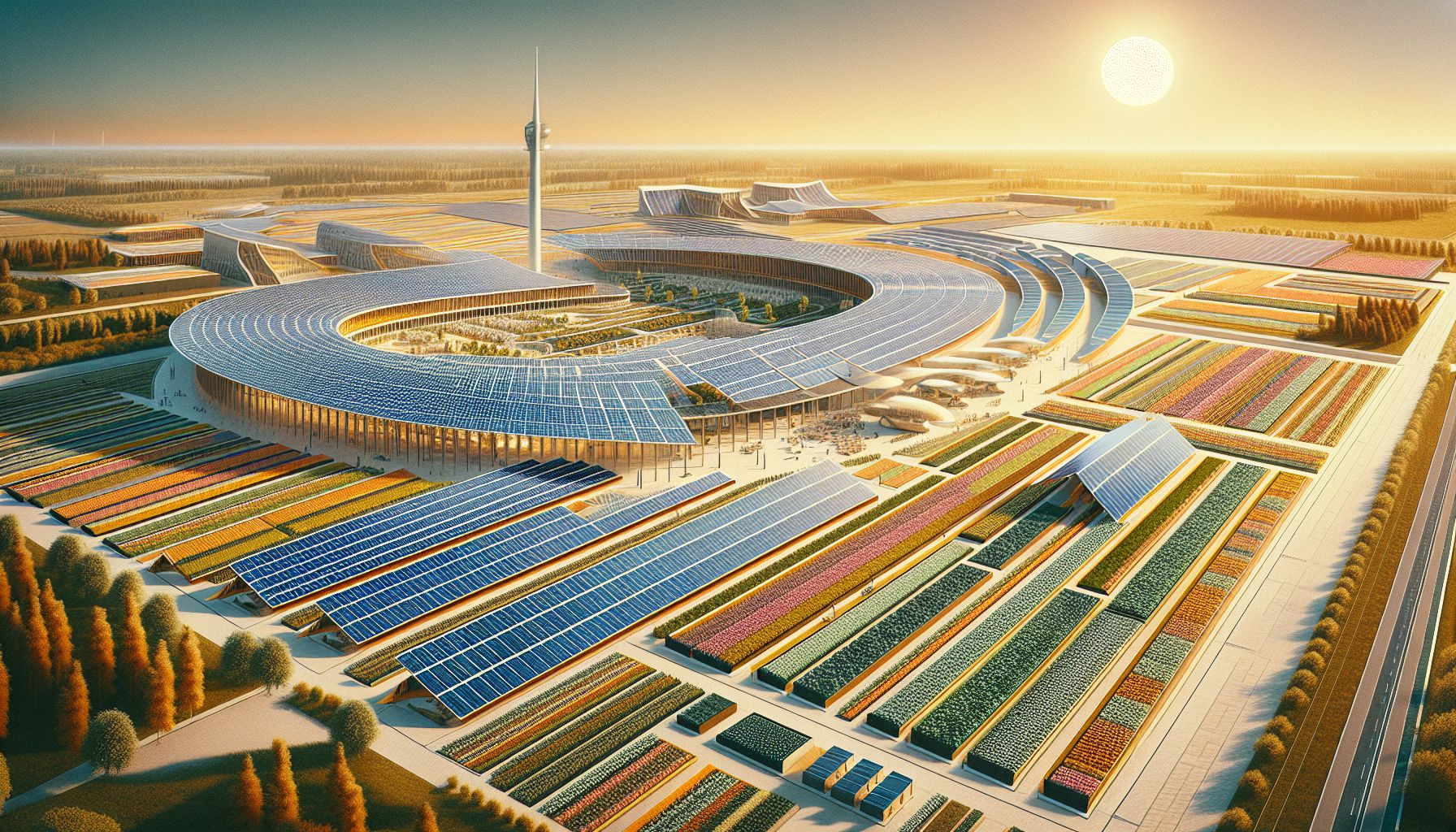Dutch Solar Park Pioneers Agriculture-Energy Integration

Netherlands, Sunday, 22 September 2024.
The Symbizon solar park in Almere, Netherlands, innovatively combines solar energy production with agriculture. Opened on September 21, 2024, it features adjustable solar panels spaced to allow crop cultivation, addressing both renewable energy and food production needs.
Innovative Design and Agricultural Integration
The Symbizon solar park, developed by Vattenfall in collaboration with HEMUS/ERF, AERES University of Applied Sciences, and TNO, is a groundbreaking project that integrates solar energy production with agricultural practices. Located between highways A6 and A27 near Almere, this 4.9-hectare park features solar panels spaced 9 to 15 meters apart, allowing for the cultivation of crops such as potatoes, oats, onions, and beans[1]. This innovative design enables tractors to maneuver between the rows, ensuring that traditional farming activities can continue alongside renewable energy generation.
Technological Advancements
The solar panels at Symbizon are equipped with sun-tracking technology, which optimizes the capture of sunlight by adjusting the panels up to 60 degrees. This technology not only maximizes energy output but also benefits the crops by reducing soil evaporation and providing partial shelter during extreme weather conditions. Additionally, the moving shadows created by the panels enhance photosynthesis, contributing to better crop yields[2].
Research and Ecological Benefits
A key aspect of the Symbizon project is its focus on research and ecological improvements. AERES University of Applied Sciences is conducting extensive research on the effects of shade from the solar panels on crop yields, soil health, and disease prevalence. Sensors installed by TNO monitor light availability and the impact of dust on solar energy output. These studies aim to optimize the balance between energy production and agricultural productivity, ensuring that both sectors benefit from this innovative approach[3].
Economic and Environmental Impact
The dual-use approach of the Symbizon solar park provides a stable additional income stream for farmers, mitigating financial risks associated with crop damage due to extreme weather. This model of ‘Agri-PV’ or agricultural photovoltaic systems is particularly beneficial in densely populated countries like the Netherlands, where land use is a critical consideration. By combining energy and food production on the same land, the project addresses multiple needs without compromising the ecological and economic viability of either sector[4].
Future Prospects and Community Engagement
The Symbizon project was inaugurated as part of the Open Energy Day on September 21, 2024, an event that attracted around 5,000 visitors across the Netherlands. The opening ceremony featured discussions with key stakeholders from Vattenfall, Rijksvastgoedbedrijf, and Holland Solar, highlighting the importance of sustainable energy projects in the energy transition. The park’s successful implementation sets a precedent for future projects that aim to integrate renewable energy with other land uses, fostering a more sustainable and resilient agricultural sector[5].

